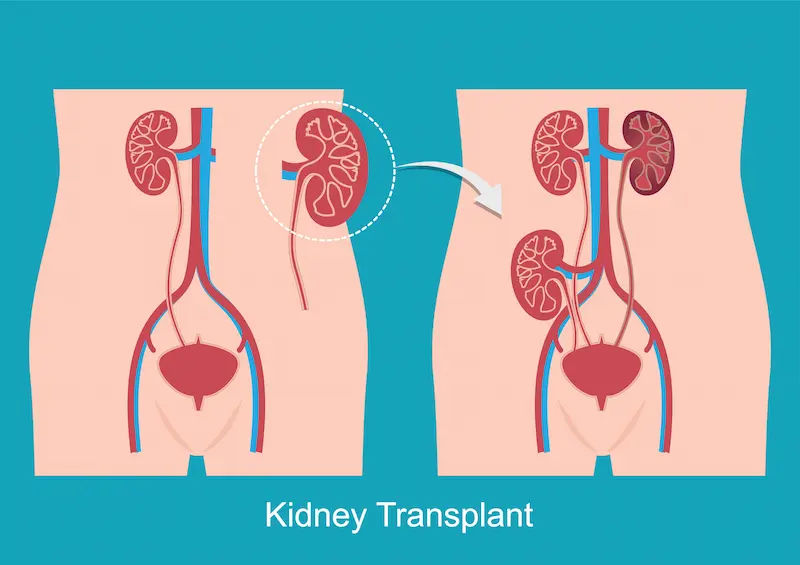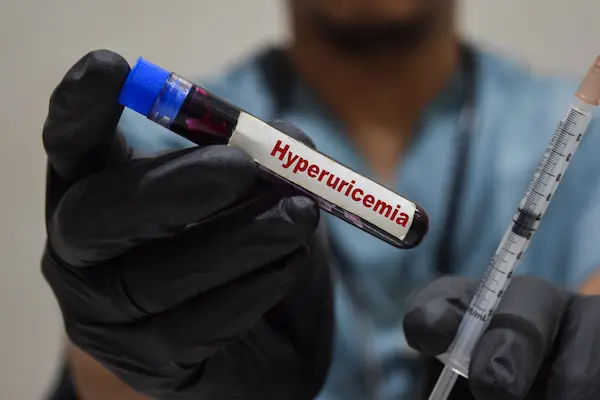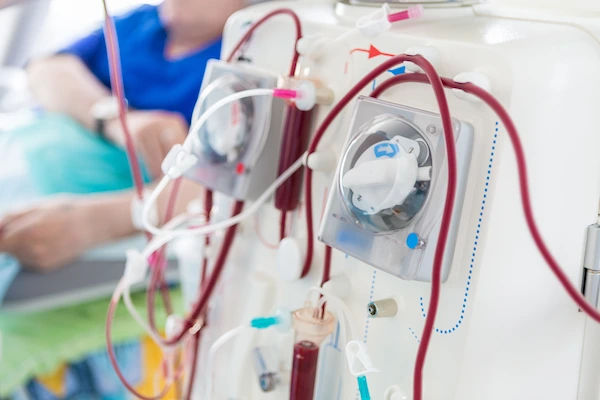Guide to Kidney Transplant Recovery
A comprehensive guide to kidney transplant recovery. Learn about the post-surgery timeline, medication, diet, and lifestyle changes to ensure a successful recovery.

Written by Dr. Mohammed Kamran
Reviewed by Dr. Rohinipriyanka Pondugula MBBS
Last updated on 13th Jan, 2026
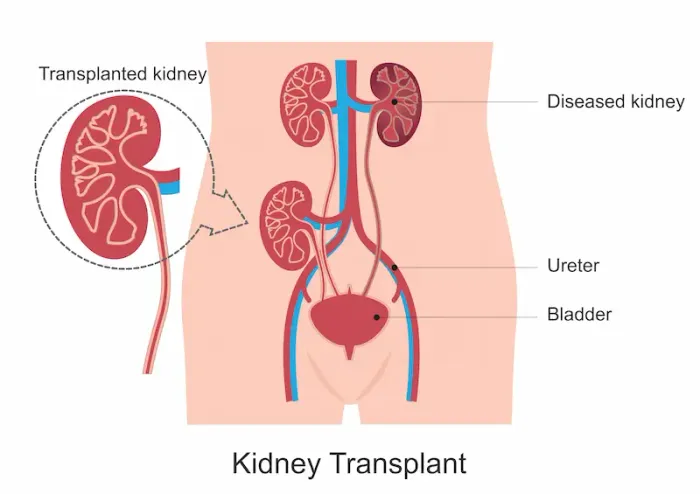
Introduction
Congratulations on your kidney transplant! This life-changing procedure marks the beginning of a new chapter. While the surgery itself is a major milestone, the journey to full health is guided by the recovery process. This comprehensive guide is designed to walk you through every stage of kidney transplant recovery, from the first few hours after surgery to thriving for years to come. We’ll cover what to expect, how to care for yourself, the crucial role of medication, and how to build a healthy lifestyle that protects your new kidney. Our goal is to empower you with knowledge and confidence as you embrace this second chance.
The First 24-48 Hours: What to Expect in the Hospital
Immediately after your kidney transplant surgery, you will be moved to a recovery room or the Intensive Care Unit (ICU) for close monitoring. This period is all about ensuring your new kidney starts functioning properly and that your body is stable.
Immediate Post-Operative Care
You will have several tubes and monitors in place. An IV line will deliver fluids, medications, and electrolytes. A catheter will drain urine from your bladder, allowing the medical team to measure your output—a key sign that your new kidney is working. You will also have a surgical drain near the incision to remove excess fluid. Your blood pressure, temperature, and heart rate will be monitored constantly. It’s normal to feel drowsy and disoriented from the anesthesia.
Managing Pain and Discomfort
You will experience pain and soreness at the surgical site. Your medical team will manage this effectively with pain medication through your IV or orally. Don’t hesitate to tell them if your pain is not controlled. You will be encouraged to start moving slowly—first by sitting on the edge of the bed, then standing, and eventually taking a few steps with assistance. This movement is vital for preventing blood clots and pneumonia.
The Road to Discharge: Meeting Your Milestones
You can typically expect to be in the hospital for about a week, but the exact timing depends on how quickly you meet certain health milestones.
Key Health Indicators for Going Home
Before discharge, your team will ensure:
• Your new kidney is creating ample urine, and your creatinine levels (a key measure of kidney function) are dropping and stabilizing.
• You can take oral medications and keep food down.
• Your pain is manageable with oral pain relievers.
• Your incision shows no signs of infection.
Educating Yourself and Your Caregiver
A huge part of discharge preparation is education. You and a family member or caregiver will learn about your complex medication schedule, how to care for your incision, how to check your weight and blood pressure at home, and which warning signs to watch for. You will receive a detailed discharge plan with all your appointments and instructions.
The First 90 Days: The Critical Healing Phase
The first three months post-transplant are the most critical. During this time, your body is most likely to show signs of rejecting the new organ, and your medication doses will be at their highest.
Your Strict Medication Regimen: Immunosuppressants 101
Immunosuppressants, or anti-rejection drugs, are the cornerstone of your recovery. They work by suppressing your immune system to prevent it from attacking the new kidney. Adherence to this medication schedule is non-negotiable. Taking your pills at the exact same time every day is crucial for maintaining stable drug levels in your blood and protecting your kidney.
Common Side Effects of Anti-Rejection Drugs
While essential, these medications can have side effects. Being aware of them helps you manage them and report them to your doctor. Common ones include:
1. Tremors or shaking hands
2. Increased appetite and weight gain
3. Elevated blood pressure
4. Increased risk of infections (due to a suppressed immune system)
5. Upset stomach
6. Puffyness or roundness of the face (a common side effect of prednisone)
If any side effects become severe, your transplant team can adjust your dosage or prescribe additional medications to manage them. Never stop taking your immunosuppressants without consulting your doctor.
Dietary Guidelines for Early Recovery
Your diet will be more flexible than during dialysis, but still requires care. Initially, you may need to follow a low-potassium or low-phosphorus diet if your levels are high. As your kidney function stabilizes, these restrictions often loosen. A heart-healthy diet—low in salt, sugar, and saturated fat—is recommended to control blood pressure and weight gain from medications. Protein is important for healing but should be consumed in moderate amounts as advised by your dietitian.Consult Top Specialists
Long-Term Health: Thriving with Your New Kidney
After the first few months, life begins to normalize. However, protecting your kidney’s health becomes a lifelong commitment.
The Transplant Diet: Nutrition for Longevity
A balanced diet is key. Focus on:
• Low Sodium: To control blood pressure and fluid retention.
• Lean Proteins: Like chicken, fish, and eggs.
• High Fiber: Fruits, vegetables, and whole grains (monitoring potassium levels as advised).
• Limited Sugars and Processed Foods: To prevent diabetes and weight gain.
• Staying hydrated is also crucial, but your doctor will give you a recommended daily fluid intake.
Monitoring for Signs of Kidney Rejection
Vigilance is forever. Be aware of the symptoms of kidney rejection and report them immediately:
• Decreased urine output
• Swelling in your hands, feet, or ankles
• Weight gain of more than 2-3 pounds in a day
• Fever over 100°F (38°C)
• Pain or tenderness over the transplant site
• Extreme fatigue
• Regular blood tests to check your creatinine levels are your best early warning system and will be a permanent part of your life.
Protecting Your Health: Preventing Infections and Complications
With a suppressed immune system, you are more vulnerable to infections.
Recognizing Symptoms of Infection
Be proactive. Watch for:
• Fever or chills
• Cough or shortness of breath
• Redness, swelling, or pus from your incision
• Painful urination or frequent urination
Practice good hygiene: wash your hands frequently, avoid crowded places initially, and stay up-to-date on vaccinations (as approved by your transplant team).
Managing Other Health Conditions
Your transplant team will also monitor for other potential long-term issues linked to immunosuppressants, such as high blood pressure, diabetes, high cholesterol, and an increased risk of certain cancers. Attending all your follow-up appointments is critical for managing these risks. If you experience any new or persistent symptoms, consulting a doctor online with Apollo24|7 can provide quick, expert guidance on whether you need further evaluation.
The Emotional Journey: Mental Health After Transplantation
It’s common to experience a rollercoaster of emotions—joy, anxiety, guilt, and fear. "What if my body rejects the kidney?" is a common worry.
Dealing with Anxiety and "What-Ifs"
This is completely normal. Talking to a therapist who specializes in chronic health issues can be incredibly beneficial. Many transplant centers offer support groups where you can connect with others who truly understand your experience.
The Importance of Your Support System
Lean on your family, friends, and caregiver. They are on this journey with you. Open communication about your fears and needs will help them provide the best support possible.
Conclusion: Embracing Your Second Chance at Life
A kidney transplant is a profound gift that offers freedom from dialysis and a return to a more normal life. The recovery journey requires dedication, vigilance, and patience, but the reward is immeasurable. By becoming an expert in your own care, adhering to your medical plan, and embracing a healthy lifestyle, you can protect your new kidney and enjoy a full, active life for years to come. This guide is your starting point. Use it, refer back to it, and always maintain a strong, open partnership with your transplant team. Your future is bright.
Consult Top Specialists
Consult Top Specialists

Dr. Rajib Ghose
General Physician/ Internal Medicine Specialist
26 Years • MBBS
Kolkata
B Ghose Foundation Doctor's Chamber, Kolkata
(50+ Patients)

Dr. Amitava Ray
General Physician/ Internal Medicine Specialist
20 Years • MBBS, DNB (Family Med.), PGDHHM, FRSTM&H. Certificate in Geriatric medicine & Diabetes Management.
Kolkata
Apollo Multispeciality Hospitals , Kolkata, Kolkata
(625+ Patients)

Dr Summaiya Banu
General Practitioner
8 Years • MBBS
Hyderabad
Apollo 24|7 Clinic, Hyderabad
(250+ Patients)

Dr. Jawwad Mohammed Kaleem
General Practitioner
4 Years • MBBS
Hyderabad
Apollo 24|7 Clinic, Hyderabad

Dr. Rajib Ghose
General Physician/ Internal Medicine Specialist
25 Years • MBBS
East Midnapore
VIVEKANANDA SEBA SADAN, East Midnapore
Consult Top Specialists

Dr. Rajib Ghose
General Physician/ Internal Medicine Specialist
26 Years • MBBS
Kolkata
B Ghose Foundation Doctor's Chamber, Kolkata
(50+ Patients)

Dr. Amitava Ray
General Physician/ Internal Medicine Specialist
20 Years • MBBS, DNB (Family Med.), PGDHHM, FRSTM&H. Certificate in Geriatric medicine & Diabetes Management.
Kolkata
Apollo Multispeciality Hospitals , Kolkata, Kolkata
(625+ Patients)

Dr Summaiya Banu
General Practitioner
8 Years • MBBS
Hyderabad
Apollo 24|7 Clinic, Hyderabad
(250+ Patients)

Dr. Jawwad Mohammed Kaleem
General Practitioner
4 Years • MBBS
Hyderabad
Apollo 24|7 Clinic, Hyderabad

Dr. Rajib Ghose
General Physician/ Internal Medicine Specialist
25 Years • MBBS
East Midnapore
VIVEKANANDA SEBA SADAN, East Midnapore
More articles from Kidney Failure
Frequently Asked Questions
1. How long does it take to fully recover from a kidney transplant?
While you may feel significantly better within a few weeks, full recovery typically takes about 6 months to a year. The first 3 months are the most critical for monitoring rejection, but managing your health is a lifelong process.
2. What is the most important thing to remember after a transplant?
The single most important thing is strict adherence to your immunosuppressant (anti-rejection) medication schedule. Taking your medication exactly as prescribed is vital for the long-term survival of your new kidney.
3. Can I ever stop taking my anti-rejection drugs?
No. You will need to take immunosuppressants for the rest of your life to prevent your body from rejecting the transplanted kidney. Stopping these medications will lead to rejection.
4. What are the dietary restrictions after a kidney transplant?
Initially, you may have some restrictions based on your bloodwork (e.g., potassium, phosphorus). Long-term, the focus shifts to a heart-healthy diet low in salt, sugar, and saturated fat to manage the side effects of medications like weight gain and high blood pressure.
5. When can I return to work after my surgery?
This depends on your recovery speed and the physical nature of your job. Many people with desk jobs can return within 6-8 weeks. Those with more physically demanding jobs may need 3-4 months or longer. Always get clearance from your transplant team first.
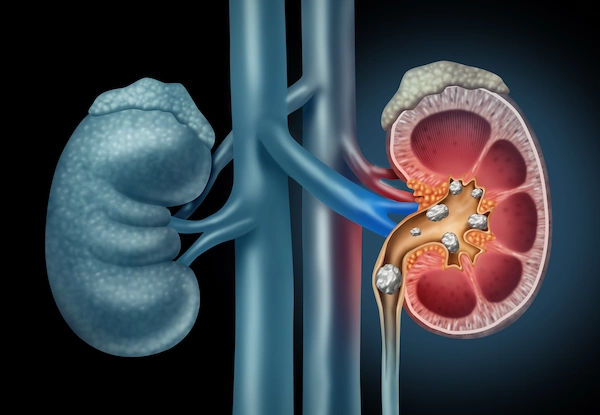
.webp)
